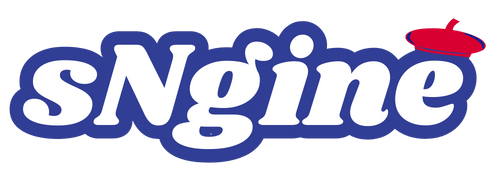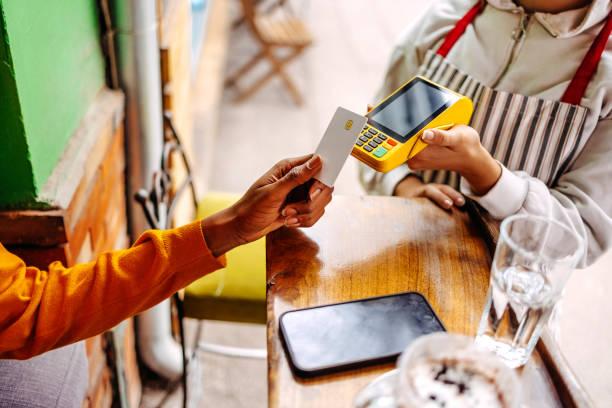Picture this: You're at a networking event, and someone asks for your business card. You fumble through your wallet, only to realize you left them at the office. Sound familiar? We've all been there. But here's the good news—the world of professional networking has evolved beyond traditional paper cards. Today, digital business cards and NFC cards are revolutionizing how we share contact information. But what exactly are they, and more importantly, which one is right for you?
If you're confused about the difference between digital business cards and NFC cards, you're not alone. These terms are often used interchangeably, which only adds to the confusion. The truth is, while they're related, they're not quite the same thing. Let's dive deep into understanding both technologies, their unique features, and help you decide which solution best fits your networking needs.
What Are Digital Business Cards?
Digital Business Card UK are electronic versions of traditional paper business cards that can be created, stored, and shared using smartphones, tablets, or computers. Think of them as virtual contact cards that live in the cloud rather than in your wallet.
These modern alternatives allow you to share your contact information through multiple channels—email, text message, QR codes, social media, or even dedicated apps. The beauty of digital business cards lies in their flexibility and accessibility. You can update your information instantly without reprinting anything, include multimedia elements like videos or portfolio links, and never worry about running out of cards at crucial moments.
Popular platforms like HiHello, Blinq, CamCard, and Mobilo have made creating digital business cards incredibly simple. Most services offer customizable templates where you can add your name, title, company, phone number, email, website, and social media profiles. Some even allow you to embed appointment scheduling links or product catalogs directly into your card.
Understanding NFC Cards
NFC stands for Near Field Communication, a wireless technology that enables data transfer between two devices when they're brought close together—typically within four inches. NFC cards are physical cards embedded with a tiny chip that stores your contact information and transmits it to smartphones when tapped.
These cards look like regular business cards or credit cards but pack powerful technology inside. When someone taps their NFC-enabled smartphone against your card, it instantly triggers an action—usually opening a digital profile with your contact details, which the recipient can then save to their phone.
NFC technology isn't new; you've probably used it if you've ever made a contactless payment with your credit card or smartphone. The same technology that powers Apple Pay and Google Pay is now being harnessed for professional networking. Companies like Popl, Linq, Mobilo, and Tapni have created sleek NFC cards specifically designed for business networking.
The Key Differences Explained
While both digital business cards and NFC cards serve the same purpose—sharing contact information digitally—they differ in several fundamental ways.
Physical vs. Virtual: The most obvious difference is that NFC cards are physical objects you carry with you, while digital business cards exist entirely in the digital realm. NFC cards give you something tangible to hand over, which some people find more professional or memorable. Digital business cards, on the other hand, eliminate the need to carry anything physical.
Sharing Methods: Digital business cards can be shared through numerous channels—text, email, QR codes, messaging apps, and more. NFC cards rely specifically on tap-to-share functionality, though many also include QR codes as a backup option. This means digital cards offer more versatility in how you network.
Technology Requirements: NFC cards require the recipient to have an NFC-enabled smartphone, though most modern phones have this capability. Digital business cards can work with any device that has internet access, making them more universally accessible.
Cost Comparison and Investment
When it comes to budget considerations, there's a clear distinction between these two options.
Digital business cards typically operate on a subscription model. Many platforms offer free basic versions with limited features, while premium plans range from five to fifteen dollars monthly. These plans usually include unlimited sharing, custom branding, analytics, and integration with CRM systems. The upfront cost is minimal, making them accessible for freelancers and small business owners.
NFC cards require an initial purchase, with prices varying widely based on design and features. Basic NFC cards start around fifteen to twenty dollars, while premium custom-designed cards can cost fifty dollars or more. However, this is often a one-time expense, though some NFC card providers also charge monthly fees for the profile platform that hosts your digital information.
Consider your usage patterns: If you attend frequent networking events and share your information dozens of times weekly, a digital solution might be more cost-effective. If you prefer face-to-face interactions and want something memorable to leave behind, an NFC card could be worth the investment.
Convenience and Accessibility Features
Convenience is where these technologies truly differ in practical application.
Digital Business Cards shine in spontaneous situations. Forgot your wallet? No problem—your digital card is always with you as long as you have your phone. You can share your information with someone across the country as easily as someone standing next to you. Plus, updating your information takes seconds and applies instantly to everyone who has access to your card.
NFC cards excel in face-to-face networking scenarios. The tap-to-share experience feels modern and impressive, creating a memorable moment during introductions. There's also something psychologically powerful about the physical exchange, even if the actual information transfer is digital. Additionally, NFC cards work without requiring you to unlock your phone or open an app, making the exchange faster in some situations.
However, NFC cards have limitations. If you forget your card at home, you're out of luck. If your information changes, you either need to update the linked digital profile or order new cards. And if someone doesn't have an NFC-enabled phone, you'll need a backup sharing method.
Customization and Branding Options
Your business card is often someone's first impression of your professional brand, making customization crucial.
Digital business cards offer incredible flexibility for branding. You can incorporate your company colors, logo, custom backgrounds, and even animated elements. Many platforms allow you to create multiple card versions for different purposes—one for clients, another for potential employers, or specialized cards for different products or services. You can also embed rich media like introduction videos, portfolio galleries, or testimonials.
NFC cards provide physical design possibilities that digital cards cannot match. You can choose from various materials—plastic, metal, wood, or even eco-friendly options. The tactile quality and visual design of a well-crafted NFC card can make a lasting impression. However, once printed, the physical design is permanent, limiting your ability to refresh your branding without ordering new cards.
Some users opt for both solutions, using simple NFC cards with QR codes that link to highly customized digital profiles, combining the best of both worlds.
Analytics and Tracking Capabilities
Understanding how your networking efforts perform can be incredibly valuable for professionals and businesses.
Digital business card platforms typically offer robust analytics. You can track how many times your card was viewed, which links were clicked, when people interacted with your information, and sometimes even geographic data about your connections. This information helps you understand which networking channels are most effective and follow up with leads more strategically.
NFC cards connected to digital profiles often provide similar analytics, tracking when your card is tapped and what actions recipients take afterward. However, the depth of analytics varies significantly by provider. Some basic NFC card solutions offer minimal tracking, while premium services provide comprehensive insights comparable to digital card platforms.
For sales professionals, recruiters, or anyone who relies on networking for business growth, these analytics can transform casual encounters into trackable leads and measurable networking ROI.
Environmental Considerations
In an era of increasing environmental awareness, the sustainability of your networking tools matters.
Digital business cards are inherently eco-friendly. They eliminate paper waste entirely, requiring no printing, no transportation, and no disposal. Over a professional's career, this could save thousands of paper cards from landfills. For environmentally conscious professionals and companies with sustainability goals, digital cards align perfectly with green initiatives.
NFC cards present a more complex environmental picture. While they eliminate the waste from constantly reprinting updated cards, they are made from plastic or other materials that have environmental impacts. However, their reusability and longevity mean one NFC card can replace hundreds of paper cards over time. Some companies now offer NFC cards made from recycled materials or sustainable alternatives like bamboo or recycled ocean plastic.
The most environmentally friendly approach might be a digital-first strategy, using NFC cards sparingly for situations where the physical exchange adds significant value.
Security and Privacy Concerns
As with any digital technology, security deserves careful consideration.
Digital business cards require you to trust a third-party platform with your contact information. Reputable providers use encryption and secure servers, but data breaches remain a possibility. Additionally, once you share your digital card, you have limited control over how recipients use or store your information. However, most platforms allow you to update or deactivate your card if needed, giving you some control even after sharing.
NFC cards themselves are relatively secure—the chip simply directs phones to a URL or transmits basic contact data. The security concerns are primarily with the linked digital profile platform. Using a secure platform with two-factor authentication and regular security updates is essential. One advantage is that NFC technology requires close proximity, making unauthorized scanning unlikely.
Both solutions offer better privacy control than paper cards. You can choose exactly what information to share, potentially offering different versions for different contexts, and you can update or revoke access if circumstances change.
Integration with Other Tools
How well your business card solution works with your existing technology ecosystem can significantly impact its usefulness.
Digital business cards often integrate seamlessly with various platforms. Many services connect with CRM systems like Salesforce or HubSpot, email marketing tools like Mailchimp, and professional networks like LinkedIn. This integration allows received contacts to automatically flow into your sales pipeline or email list, streamlining your follow-up process.
NFC cards vary in integration capabilities depending on the provider. Premium NFC solutions offer similar integrations to digital card platforms, while basic options might simply store contact information without broader ecosystem connectivity. Some NFC cards work with dedicated apps that offer additional features like contact management and relationship tracking.
If you rely heavily on specific business tools, verify that your chosen solution integrates with your existing software before committing. The right integrations can transform a simple contact exchange into a comprehensive networking and relationship management system.
Which Option Should You Choose?
Selecting between digital business cards and NFC cards ultimately depends on your specific needs, industry, and networking style.
Choose digital business cards if you:
-
Attend primarily virtual or hybrid events
-
Want the most cost-effective solution
-
Need flexibility to update information frequently
-
Prefer multiple sharing options
-
Value detailed analytics
-
Want the most environmentally friendly option
Choose NFC cards if you:
-
Attend primarily in-person networking events
-
Want to make a memorable physical impression
-
Appreciate the tactile exchange of cards
-
Need something that works without unlocking your phone
-
Are willing to invest in premium branding
-
Want the wow factor of modern technology
Consider using both if you:
-
Network extensively both online and offline
-
Want maximum flexibility
-
Represent a brand that values innovation
-
Have budget for both solutions
Many professionals find that a hybrid approach works best—using digital cards as their primary method while keeping a few premium NFC cards for high-value connections or important events.
FAQ
Do I need a special app to receive information from an NFC card?
No, most modern smartphones have built-in NFC readers that work automatically. When someone taps their phone against your NFC card, it triggers a notification that opens your contact information in their browser. No app download is required for the recipient, making the experience seamless and user-friendly.
Can digital business cards work without internet connection?
This depends on the platform. Some digital business card services allow you to download and share your card as a contact file (vCard) that can be sent via Bluetooth or AirDrop without internet. However, sharing via QR codes or links typically requires an internet connection for the recipient to view your full profile.
How long do NFC cards last before they stop working?
Quality NFC cards can last for years with proper care. The NFC chip itself is durable and doesn't have an expiration date. However, the physical card can wear out from regular handling, bending, or exposure to extreme conditions. Most manufacturers estimate a lifespan of 3-5 years with normal use, though many cards last considerably longer.
Can I share digital business cards with people who don't have smartphones?
Yes, though with some limitations. You can email your digital business card to anyone with an email address, and they can view it on any device with internet access—computers, tablets, or even shared devices. Some platforms also allow you to print a QR code version of your digital card for those who prefer or need physical options.
Are NFC cards compatible with iPhones?
Yes, all iPhones from iPhone 7 and newer have NFC reading capability. For iPhone XR and later models, NFC works automatically in the background. Older NFC-capable iPhones (iPhone 7, 8, and X) may require you to open the camera app or use a specific NFC app, depending on the iOS version.
Can I track who saves my contact information from my digital business card?
Most premium digital business card platforms provide analytics showing when your card is viewed and which links are clicked. However, you typically cannot see whether someone actually saved your contact information to their phone's contact list, as this happens locally on their device. Some platforms notify you when someone views your card, giving you a general sense of engagement.
What happens if I lose my NFC card?
If you lose your NFC card, someone who finds it could potentially access the contact information linked to it by tapping it with their phone. However, they cannot modify your information or access anything beyond what you've chosen to share publicly. Most NFC card platforms allow you to deactivate a lost card from your account dashboard, similar to canceling a lost credit card.
Are digital business cards accepted in professional settings?
Yes, digital business cards are increasingly accepted and even expected in many industries, particularly in tech, creative fields, and among younger professionals. However, some traditional industries or senior executives may still prefer physical cards. When in doubt, having both options available ensures you can adapt to any situation and never miss a networking opportunity.



